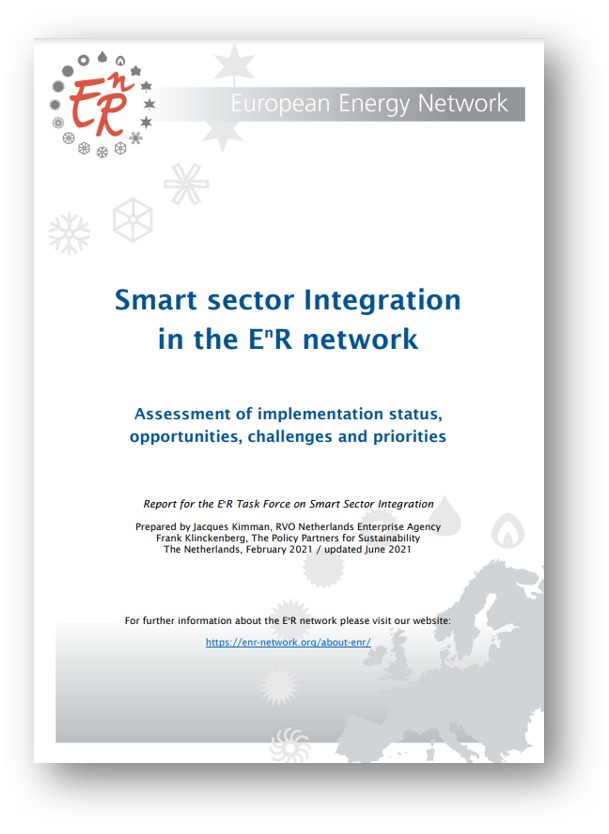During the EnR Presidency year of the Netherlands Enterprise Agency/ RVO (February 2020 – February 2021) Jacques Kimman and Frank Klinckenberg, RVO, together with the EnR Task Force on Smart Sector Integration (SSI), prepared this comprehensive report on Smart Sector Integration, the priority topic of RVO’s presidency. This report includes an assessment of the status of implementation of SSI in the different countries, and identifies a number of challenges, priorities and recommendations for follow-up for national governments and the European Commission. The study reveals that Smart sector integration, or the development of decarbonised, integrated energy systems, is already part of energy transition strategies in almost all European countries. It is also a core element of the European Green Deal and crucial to achieving goals of the Renovation Wave and Just Transition in particular.
Smart sector integration encompasses approaches in which efforts in two or more sectors are combined to create a stronger impact. Examples are building facade integrated PV systems, in which PV panels form a part of the facade of a building, and local integration of renewable energy generation and vehicle charging. Such approaches can also be extended to include additional sectors to create even larger gains in environmental impact and societal benefits. Many EnR members have started exploring smart sector integration in their respective countries, and many have also participated in large-scale integrated projects tackling a wide range of green economy aspects including re-generating the built environment, creating sustainable industrial areas, transforming the electricity and renewable heat infrastructure and greening the transport infrastructure, with further links to the local economy and citizen and business involvement.
Energy agencies, with their central role in facilitating the energy transition, are at the heart of these developments and have learnt valuable lessons about smart sector integration initiatives and what is needed to let them flourish. Smart sector integration changes the traditional roles of various levels of government, as initiatives often involve a mix of new regulatory arrangements, combinations of instruments, goals, business and financial models and stakeholder collaborations. This creates an opportunity for combining national government, local government and agency roles for more effective interventions. It also creates a challenge since there is no “rule book” for such interventions. Energy agencies are at the crossroads of (sectoral) policy instruments, knowledge and networks and have a pivotal role in this, however, are not yet fully organised for multi-sectoral, multi-aspect initiatives and could learn from promising initiatives in many countries.
Four priorities for the continued development of smart sector integration have been identified namely researching and piloting new business models, exploring the key role of local energy exchange networks, developing a framework for energy communities and finding new ways to assure affordability of decarbonised integrated energy systems. One cannot address sector integration without defining new ways to encourage, regulate, fund and organise these new energy systems – and without re-defining how public authorities interact with stakeholders about new integrated energy systems.

